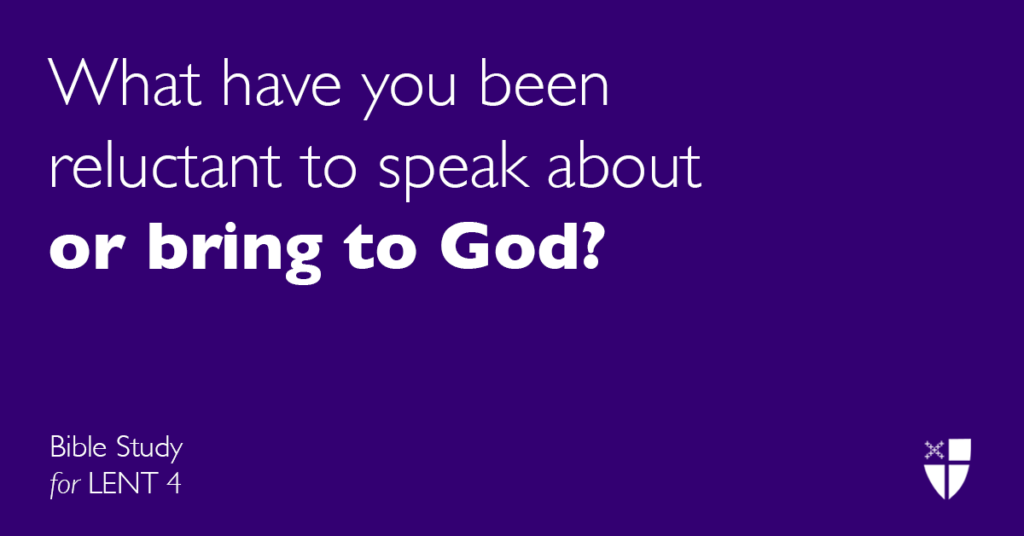Bible Study: Lent 4 (C) – 2019
March 31, 2019

Joshua 5:9-12
As we continue our journey in Lent, we are invited in a deeper awareness of our bondage to sin and the threshold decision moments in our lives. At this juncture in the Book of Joshua, the Israelites stand on a threshold between the wilderness and the Promised Land. The people have crossed over the Jordan, Joshua has just circumcised the new generation, and the Israelites are poised to conquer the city of Jericho.
Israel’s shift from utter dependence on the miracle manna to providing for themselves from the land represents a turning point in the people’s identity and relationship with God. As readers of the Hebrew Bible today, we must reckon with the transformation of the former slaves yearning for a place to prosper with the Israelite soldiers’ actions in the very next chapter, when “they devoted to destruction by the edge of the sword all in the city, both men and women, young and old” (Joshua 6:21). Was this destruction inevitable? Could there have been another way?
- When has gaining independence, control, and autonomy meant hurting others in our own lives? Was there ever a threshold moment when we could have taken another path?
- When has gaining independence, control, and autonomy meant respecting or uplifting others alongside us? What made the difference?
Psalm 32
“While I held my tongue, my bones withered away, because of my groaning all day long.”
As we journey through Lent, we are also invited to examine what we pretend to keep hidden from ourselves and from God. The psalmist laments how they kept their sin to themselves and celebrates the relief and freedom that came from sharing their burdens with God. The psalmist reminds us that withholding shameful secrets takes an actual physical toll on our bodies. Embracing the confessor’s spirit can bring healing beyond the heart and mind and can sometimes be felt in the muscles of our back, in our temples, and in our joints. Our bodies and our faith are inseparable. How might you include more of your body in your Lenten practices?
- What are some of the physical or embodied effects of shame, secrets, or sin that you’ve experienced?
- What have you been reluctant to speak about or bring to God?
2 Corinthians 5:16-21
“The ministry of lay persons is to represent Christ and his Church; to bear witness to him wherever they may be; and, according to the gifts given them, to carry on Christ’s work of reconciliation in the world.”
– Book of Common Prayer, p. 855
This passage from Paul’s letter to the church in Corinth reminds the Church of its primary mission of reconciliation. We can see the need for reconciliation in so many conflicts through our communities, whether in our families, our parishes, the nation, and the world. Reconciliation points to more than just the end of conflict. It includes the rendering of justice and the establishment of the basis for lasting peace. Paul’s letter reminds us that Christians have a special vocation to reconcile people to God through Christ. What difference does this special vocation make in our participation in other reconciliation movements?
- How might Christians’ participation in reconciliation projects across religions and cultures more fully express the Church’s mission? How are all movements toward reconciliation ultimately tied to Christ’s reconciliation?
- When do reconciliation efforts fail? When do they succeed? What makes the difference?
Luke 15:1-3, 11b-32
The Parable of the Prodigal Son—or as others prefer to call it, The Parable of the Good Father—is the third of three parables Jesus tells to a particular audience. As this Gospel selection helpfully reminds us, each of these parables is told in response to the grumbling of the Pharisees and scribes. On the one hand, Jesus is speaking to both groups: the gathering sinners and tax collectors, who might see themselves in the prodigal son, and the highly religious observers, who might see themselves in the grumpy older brother. On the other hand, Jesus tells these parables directly in reaction to the poor behavior of the Pharisees and scribes. How does the story change when we title it, The Parable of the Jealous Brother? What does that focus tell us about our own relationship to sin?
- What people are thought of as not deserving to belong in the communities you are part of? What is Jesus’ response to them?
- What might the elder son do next? What would you hope you would do? What do you think is more likely that he did?
¡No olvide suscribirse al podcast Sermons That Work para escuchar este sermón y más en su aplicación de podcasting favorita! Las grabaciones se publican el jueves antes de cada fecha litúrgica.


